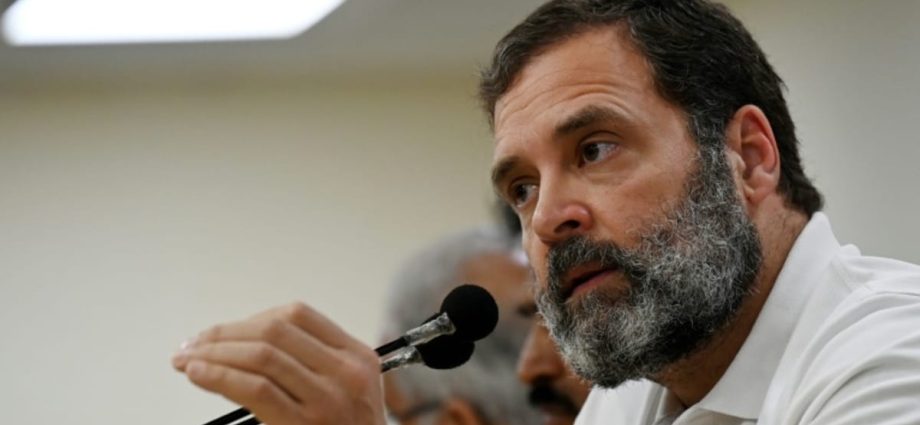
Critics highlight that the defamation conviction came after Gandhi repeatedly raised the issue of Modi’s relationship with business tycoon Gautam Adani both inside and outside parliament.
The two men – both Gujaratis – have been close associates for decades, but Adani’s business empire has been subject to renewed scrutiny this year after a United States investment firm accused it of “brazen” corporate fraud, which it denies.
Gandhi, currently on bail, is the leading face of the Congress party, once the dominant force in Indian politics but now a shadow of its former self.
He is the scion of India’s premier political dynasty and the son, grandson and great-grandson of former prime ministers, beginning with independence leader Jawaharlal Nehru.
But he has struggled to challenge the electoral juggernaut of Modi’s ruling Bharatiya Janata Party and its nationalist appeals to the country’s Hindu majority.
In an appeal filed this month, Gandhi’s lawyers argued the trial was “harsh” and excessive.
They also said that if the trial court’s decision was not stayed, it would cause irreparable damage to his reputation.
The sentence renders Gandhi ineligible to stand in next year’s election, which Modi’s party is widely expected to win convincingly.

